Juneteenth is a day to commemorate the emancipation of enslaved people in the United States on June 19th, 1865. We did it! Everyone is free! Everyone is equal! End of story, right? RIGHT?
With June 19th, 2020 approaching, why are Black Lives Matter-led protests in all 50 states and 18 countries? Didn’t we fix this? In the last two weeks, I have seen many White people asking, what can I do to help? I know this is wrong and bad things are happening, but I don’t know what to do. Well, some of the confusion might come from the media that has been consumed by White America.
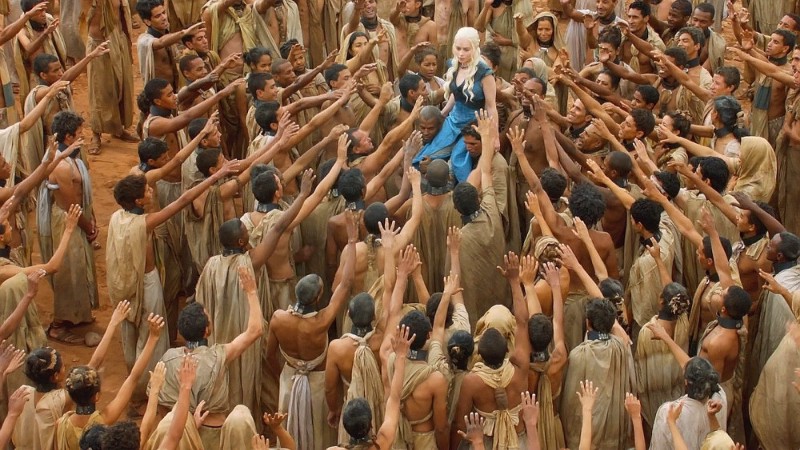
With Juneteenth and the BLM movement in mind, I wanted to look at the White savior existence in films about American slavery. My goal in looking at these films was to see how many centered on slavery feature a White savior, and what that tells viewers about history and race. Upon doing some research, I also considered which of these films had a plot based on a relationship between enslaved people and White characters. I made a list of eleven films made from 2005 to 2019 that center on slavery in the United States. I eliminated any documentaries to focus on historical fiction. Here are the movies I considered:
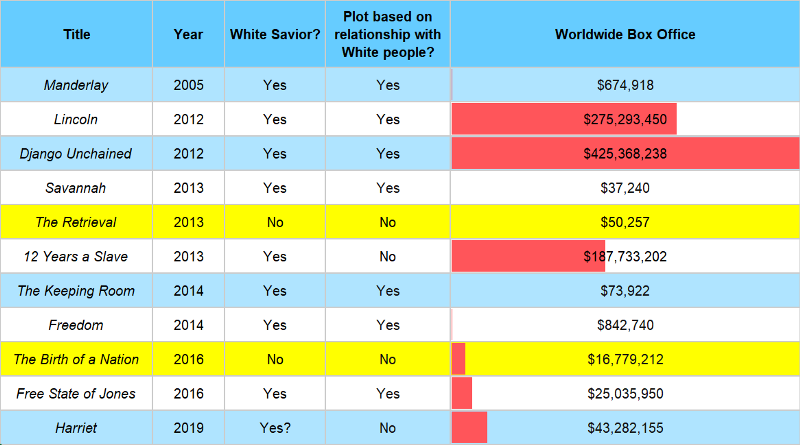
According to this information, White saviors are used as a plot device in almost every examined film. The exceptions are The Birth of a Nation and The Retrieval. The Retrieval did not have box office success, due to distribution (only in 1–5 theaters in 29 weeks) despite doing well at SXSW and earning glowing reviews. The Birth of a Nation was financially and critically successful until the allegations of rape were made about the director, writer, producer, and star, Nate Parker. With this information, there are a few things to consider: if the saviors are White, what is the role of the Black characters; and these movies were made for White audiences about historical Black experience.
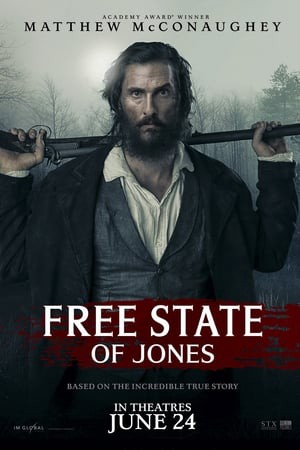
It’s quite a feat to try to make American slavery seem less horrifying. Somehow, Hollywood has been able to, and the best tool to make White audiences feel ok with their country’s history is to use a White savior. This has been going on throughout the history of film: good guy = White, bad guy = Black. Even if there are bad White characters, there will be a redeeming White person to save the day. In 2012, Teju Cole writes about the White Savior Complex. He was referring to “charitable acts” by White people in which they would go to African villages and take selfies with poor Black children laughing and hugging. Their intentions might have been good, but their actions had the opposite effect. In the same way, films dealing with slavery dehumanize Black characters by pulling the focus on the White characters. Cole writes, “What innocent heroes don’t always understand is that they play a useful role for people who have much more cynical motives.” The Black characters are saved by White characters because they are unable to save themselves. This comes in many forms. In most of the films listed, a White person was the catalyst for a Black person’s freedom. Without their participation or kindness, the Black person would have been stuck. Thank you, White person!
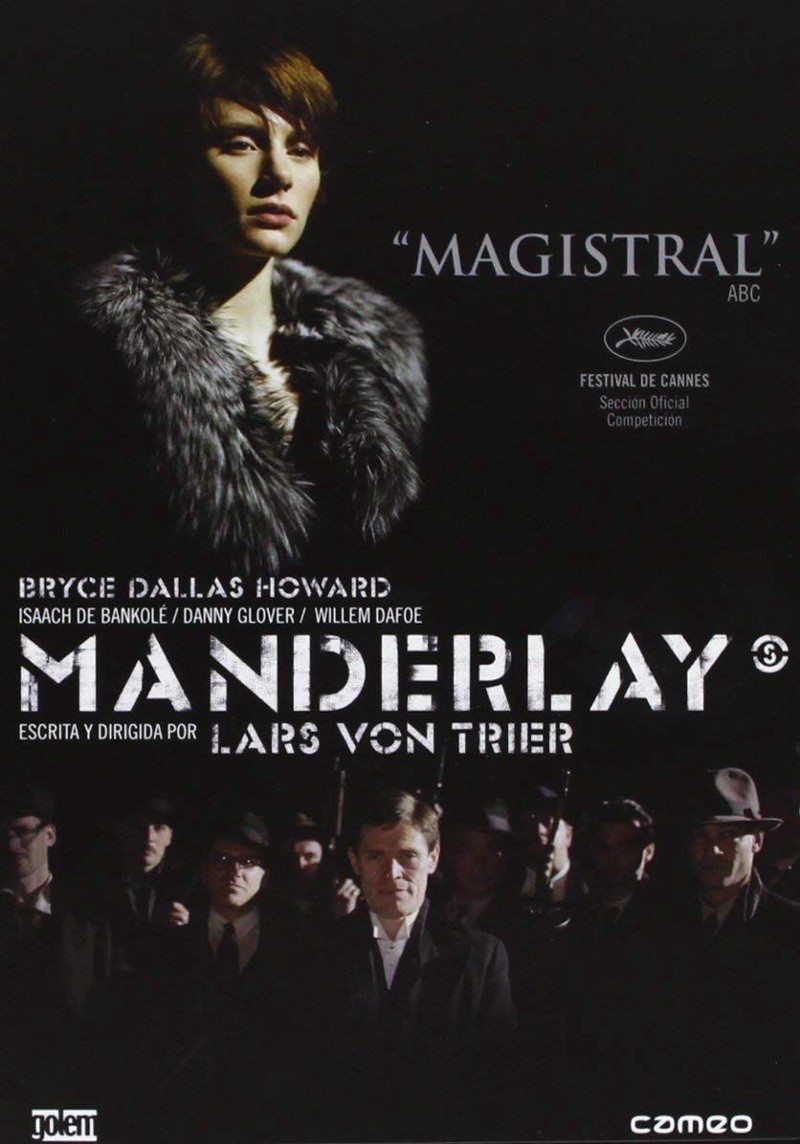
In 2014, Noah Berlatsky wrote about diversity in slavery movies. In the case of 12 Years a Slave, it was apparently historically accurate that a White man was….the savior. This is fine, as Berlatsky points out, “But when every major film representation of slavery hinges on venerating the noble sacrifices of honorable whites — well, let’s just say that as a challenge to white supremacy, it leaves something to be desired.” These movies (or some of these movies) are well-made and well-intentioned, but exist in a vacuum.
As we reflect on the meaning and purpose of Juneteenth, consider how slavery stories are presented to the world. What was an enslaved person’s experience and humanity without White people? Those are the stories that need to be told. The White audiences who were pandered to for these films can leave thinking, “Oh we messed up, but don’t worry, this one nice White person helped — never apologized or tried to change the system — just helped in this story. So you can walk away feeling great.”

Instead, I will echo a call to White people on how to best support the Black Lives Matter movement. To White filmmakers, studios, and audiences: support Black filmmakers, hire more Black studio heads, and consider the impact on Black audiences too. Let Black artists tell their own stories. I know there are hundreds of stories to be told about the humanity of the enslaved experience that don’t involve White people. Time to pass the mic.
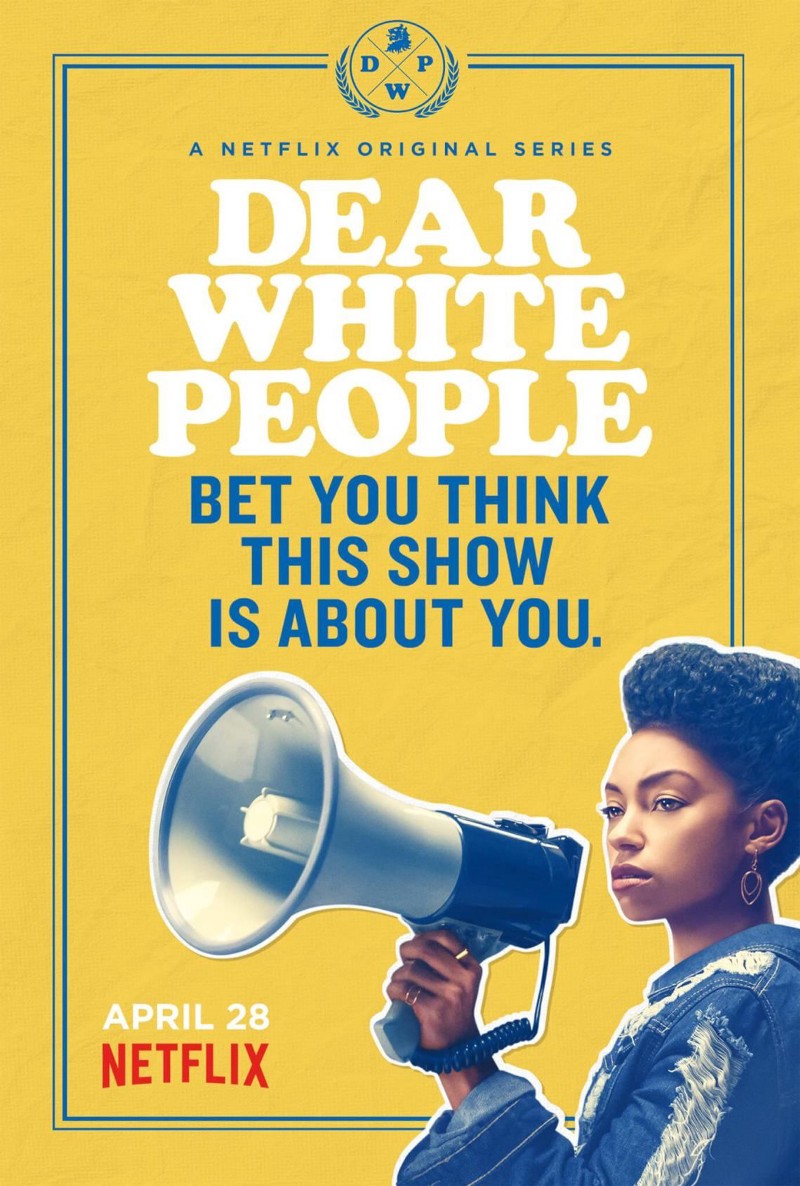
*Upon further reading, I edited this piece on June 15th to replace “slaves” with “enslaved” (as both a noun and an adjective) in recognition of the identity of a person beyond their given circumstance, rather than the inhumanity that the simple identification of “slave” condones.
Written by Sarah Erskine, originally published 6/13/2020
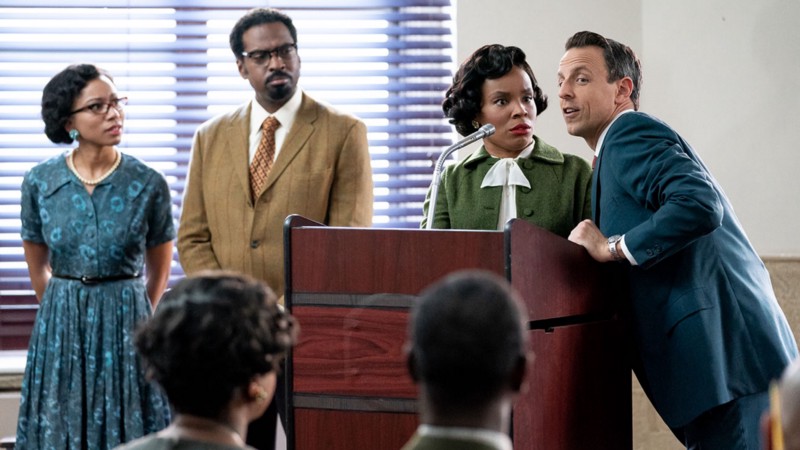
Comments